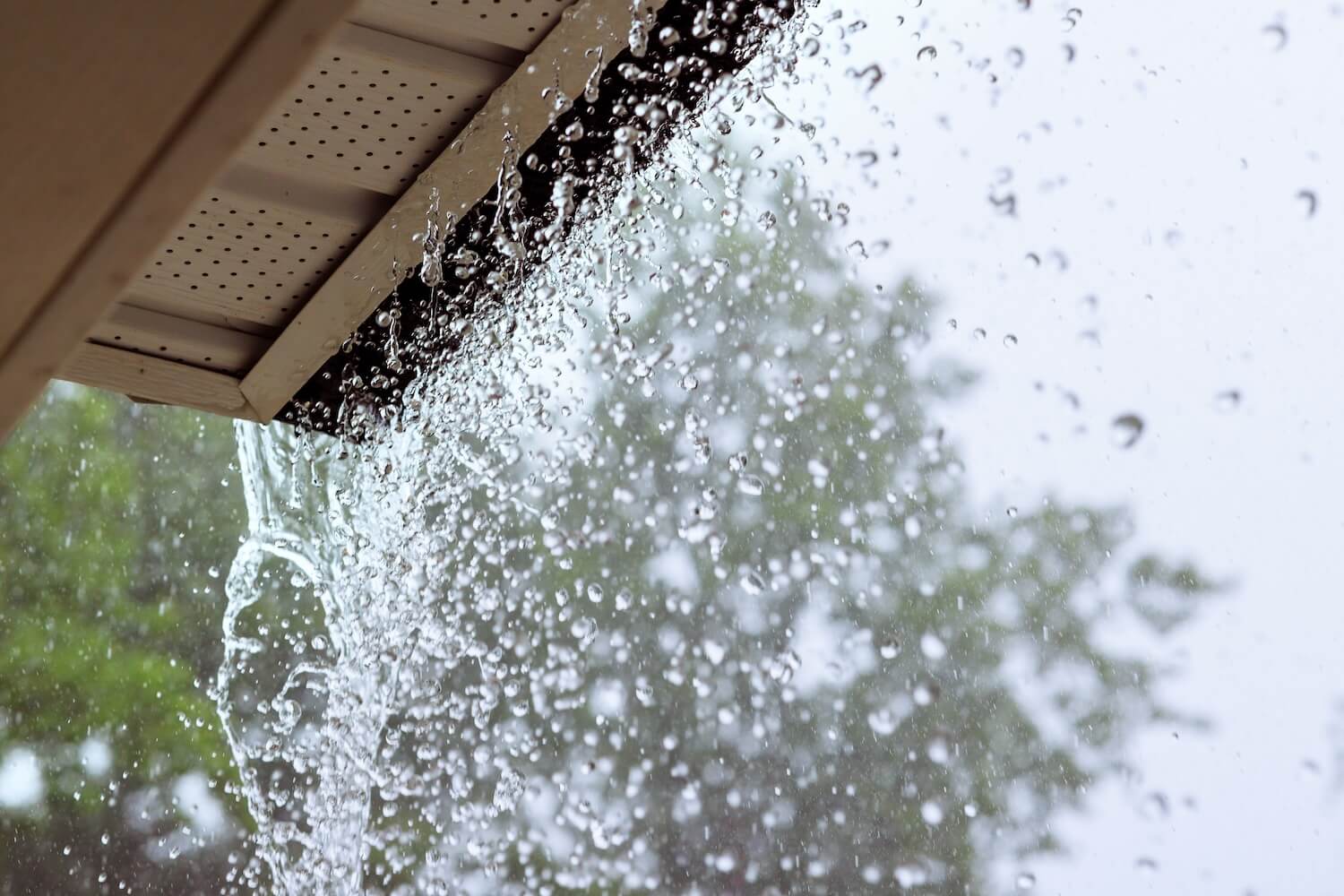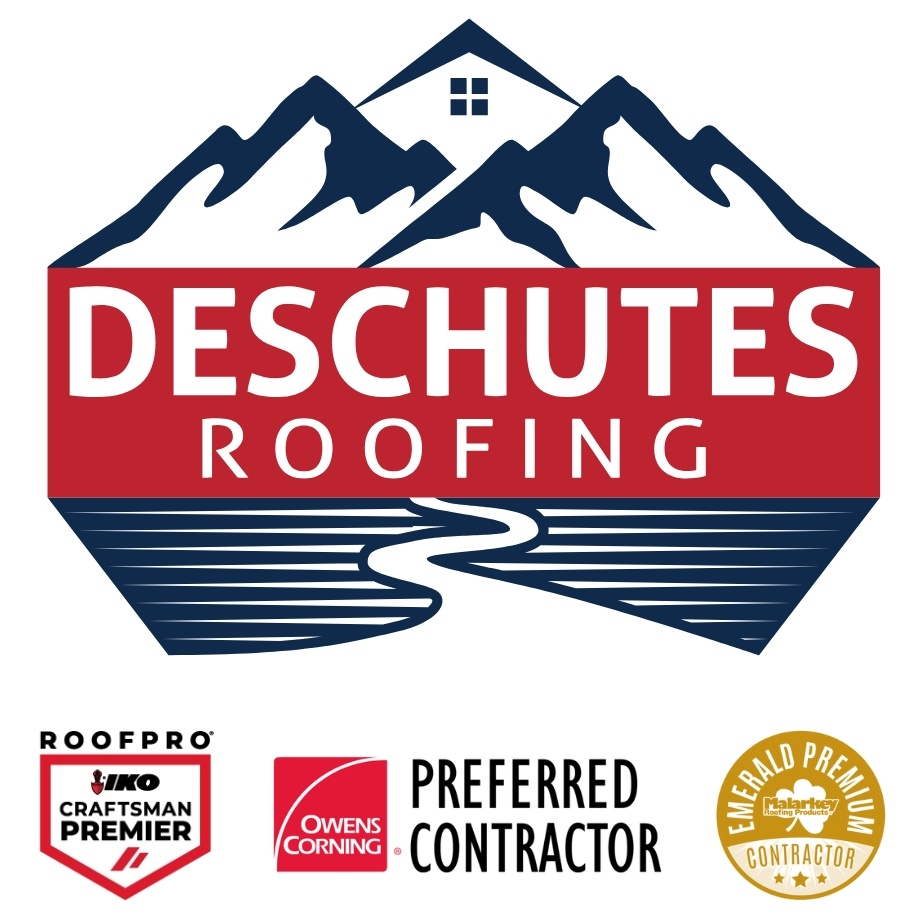Oregon’s lush landscape and moderate climate make Eugene a beautiful place to live. But while residents may appreciate the warm, dry summers after long, rainy winters, their roofs often suffer quietly in the background. Eugene’s summer climate brings unique challenges that can wear down roofing materials faster than you’d expect, leading to costly repairs—or worse, premature replacement.
Understanding how this seemingly gentle climate stresses your roof and what steps you can take to protect it is essential for homeowners who want to maintain a safe, energy-efficient, and long-lasting home.

The Truth About Eugene’s Summer Weather
At first glance, Eugene’s summers don’t seem particularly harsh. The days are warm but not scorching, usually topping out in the low to mid-80s. Rainfall is scarce, humidity is generally low, and wild temperature fluctuations aren’t common. Compared to places like Arizona or Florida, it doesn’t scream “roof danger zone.”
However, this deceptive calm can lull homeowners into ignoring the hidden stresses their roof endures.
Here’s why Eugene’s summer weather is tougher on gutter and roofs than it appears:
1. UV Radiation: The Silent Roof Killer
Even moderate sun exposure has a cumulative impact. Eugene gets about 15 hours of daylight during peak summer days. That’s a lot of UV radiation, especially when it’s beating down on your shingles for weeks without the relief of rain or cloud cover.
How it damages your roof:
-
Asphalt shingles become brittle and crack from prolonged UV exposure.
-
Sealants and flashing dry out and lose elasticity, increasing vulnerability around chimneys and vents.
-
Wood shingles and shakes may curl or split as natural oils evaporate under the sun.
Even metal roofs aren’t immune—painted coatings can fade or degrade, and expansion and contraction from heat can loosen fasteners over time.
2. Thermal Cycling and Expansion Stress
While daytime highs may hover in the 80s, nighttime temperatures can drop significantly, sometimes by 30°F or more. This fluctuation causes roofing materials to expand in the heat and contract in the cool, a phenomenon known as thermal cycling.
Why this matters:
-
Over time, fasteners loosen and seams split.
-
Shingles can lift and allow water to penetrate during the first fall rain.
-
Flat roofs may develop bubbles or blisters in membranes from repeated expansion and contraction.
In short, Eugene’s gentle days and cool nights create a tug-of-war effect that weakens your roofing system incrementally.
3. Dry Summers Lead to Hidden Moisture Issues
After the rainy spring, your roof enters summer likely still retaining some degree of moisture, especially in shaded areas or under moss. That trapped moisture doesn’t evaporate uniformly.
Common problems include:
-
Mold and mildew thrive in lingering dampness beneath debris or in attic insulation.
-
Rot and structural weakening develop beneath old shingles.
-
Premature degradation of underlayment and decking, which are not meant to remain damp in dry weather.
Without regular inspection, Eugene homeowners often find serious water damage hidden beneath what looks like a dry, intact roof.
4. Moss Growth from the Spring Carries Over
Eugene’s mild, wet springs are the perfect environment for moss and lichen growth. Unfortunately, if not cleared in time, moss doesn’t just sit dormant during the summer—it bakes onto your shingles.
The result?
-
Shingles lift and separate.
-
Granules are stripped away, reducing UV resistance.
-
Water channels form beneath the moss, creating pathways for leaks once rain returns.
Summer is the critical window for moss removal, but many homeowners mistakenly assume the problem has resolved itself once the roof dries out.
5. Wildfire Smoke and Ash Residue
While wildfires themselves may not directly threaten most homes in Eugene, the region often experiences smoke and ash from nearby forest fires. This fine particulate matter settles on roofs in large quantities during summer.
Risks include:
-
Clogged gutters, which can overflow and damage fascia and siding.
-
Chemical buildup, especially from treated fire retardants that may accompany ash fall.
-
Algae and plant growth, which thrive in nutrient-rich ash if left uncleared.
While less visible than UV or moss damage, wildfire residue can quietly contribute to long-term deterioration.
What You Can Do: Proactive Summer Roofing Strategies
Understanding the risks is only half the battle. Here’s how to protect your Eugene roof from summer-specific damage:
1. Schedule a Professional Roof Inspection this Summer
The number one defense is awareness. A certified roofer can identify minor damage before it becomes a big issue, especially damage that isn’t obvious from the ground.
Summer inspections should include:
-
Checking for cracked, curled, or missing shingles
-
Evaluating sealant and flashing conditions
-
Inspecting attic ventilation and insulation
-
Looking for moss, algae, or debris accumulation
Getting a baseline inspection every summer ensures that you catch issues from spring storms or early summer heat before fall rains hit.
2. Clean Off Roof Debris and Moss the Right Way
It’s tempting to power-wash your roof, but resist the urge. High-pressure water can strip protective granules and force moisture under shingles.
Better alternatives include:
-
Gentle brushing with a broom or leaf blower
-
Moss-killing treatments with eco-friendly, roof-safe solutions
-
Preventative zinc or copper strips installed along the ridge to discourage regrowth
Have this done professionally for best results, especially if your roof is older or steeply pitched.
3. Eugene Gutter Maintenance Isn’t Optional
In Eugene’s summer, dry leaves, ash, and pine needles accumulate in gutters faster than you’d think. When fall rain arrives, clogged gutters can lead to backflow, roof edge rot, or even water intrusion behind walls.
Make sure to:
-
Clean gutters at least twice during the summer
-
Check for sagging or detachment from the fascia
-
Install gutter guards if nearby trees are a constant problem
Professionals can also inspect downspouts and drainage systems to ensure water flows safely away from your foundation.
4. Improve Attic Ventilation and Insulation
Many roofing problems begin inside the house. If your attic traps heat, the roof deck heats from both sides, leading to accelerated wear.
Optimize by:
-
Adding ridge or soffit vents to allow hot air to escape
-
Checking insulation to ensure a consistent indoor temperature
-
Installing attic fans if passive ventilation isn’t enough
A properly ventilated attic extends roof life and can also lower your summer cooling bills.
5. Upgrade to Summer-Resilient Roofing Materials
If your roof is aging or due for replacement, choose materials that handle Eugene’s unique climate gracefully.
Best options include:
-
Metal roofing, which reflects sunlight and resists moss
-
Architectural asphalt shingles, which have longer lifespans and better UV protection than 3-tab shingles
-
Synthetic slate or composite shingles, which mimic traditional aesthetics while offering improved heat and moisture resistance
A roofing contractor familiar with Eugene’s microclimate can help you select the ideal materials.
6. Apply Reflective Coatings or Roof Sealants
If replacement isn’t yet needed, consider adding a reflective roof coating to your existing system.
Benefits include:
-
Reduced surface temperature
-
Prolonged shingles and flashing life
-
Improved energy efficiency indoors
This is particularly useful for flat or low-slope roofs and can be done affordably by a local professional.
What to Look for in a Roofing Contractor in Eugene
Hiring the right roofing contractor in Eugene isn’t just about finding someone with a ladder and a business card. Your roof is one of the most critical systems protecting your home, and Eugene’s climate presents unique challenges that not every contractor understands. Choosing a qualified, trustworthy, and experienced professional can make the difference between a roof that lasts decades and one that fails prematurely.
Here’s a detailed checklist of what to look for when selecting a roofing contractor in Eugene:
1. Local Roofing Experience in the Willamette Valley
The roofing needs of a home in Eugene are not the same as those in Portland, Bend, or even Southern Oregon. Local experience matters.
Why it’s important:
-
Contractors familiar with Eugene’s specific weather patterns—such as wet springs, dry summers, and moss-prone conditions—will know what materials and maintenance practices perform best.
-
They’ll understand how to mitigate common issues like algae growth, UV degradation, and storm runoff unique to this part of the Pacific Northwest.
Tip: Ask how long they’ve been operating specifically in Eugene or the surrounding Willamette Valley.
2. Oregon State Licensing and Insurance
A reputable roofing contractor should be licensed with the Oregon Construction Contractors Board (CCB) and carry adequate insurance, including:
-
General liability insurance, which protects your home and property if accidental damage occurs
-
Workers’ compensation insurance, which covers the crew in case of injury while working on your property
Why it matters:
If a contractor lacks proper insurance, you could be held financially responsible for accidents or damage. Verifying credentials ensures your project is compliant with Oregon state regulations and fully protected.
3. Detailed, Transparent Roofing Estimates
A professional roofing contractor should provide a written, itemized estimate before any work begins. The estimate should include:
-
Labor costs
-
Material types and brands
-
Cleanup and disposal services
-
Timeline for project completion
-
Warranty information
Avoid contractors who offer vague verbal estimates or refuse to provide details in writing. Transparency is a sign of professionalism and accountability.
4. Comprehensive Roofing Services: Inspection, Maintenance, and Repairs
The best roofing contractors don’t just install new roofs—they also offer preventive maintenance, inspections, and repair services. That’s particularly important in Eugene, where catching problems before the rainy season hits can save thousands of dollars in water damage.
Make sure your contractor can:
-
Perform annual inspections
-
Provide moss treatment and cleaning services
-
Repair flashing, gutters, and storm damage promptly
Working with a full-service roofing company ensures continuity of care and peace of mind over time.
5. Excellent Local Roof References and Reviews
Word of mouth matters in a community like Eugene. Look for roofing contractors with a strong local reputation backed by positive reviews on Google, Yelp, Angie’s List, or the Better Business Bureau.
Red flags to avoid:
-
Poor communication or no-show appointments
-
High-pressure sales tactics
-
Unresolved complaints or disputes
Better yet: Ask your neighbors. Someone in your area likely has firsthand experience with a roofer they trust—or one they wouldn’t hire again.
6. Clear Communication and Professionalism
Finally, trust your instincts. The right roofing contractor should treat you and your home with respect, communicate clearly, and follow through on promises.
Look for:
-
Prompt responses to calls or emails
-
Willingness to answer questions without jargon
-
Clear scheduling and project updates
-
Contracts that are easy to understand
If a roofer seems evasive, dismissive, or unprofessional during the quoting process, it’s likely a sign of how they’ll behave once the project begins.
Choosing Right Means Roofing Done Right
The roof is too important to leave to chance. Choosing the right roofing contractor in Eugene means partnering with someone who understands not just shingles and nails but the local climate, the values of the community, and the long-term protection of your home.
Whether you’re scheduling a summer inspection, dealing with moss buildup, or planning a full roof replacement, take your time selecting a contractor who meets all these criteria. The peace of mind—and the lifespan of your roof—are well worth the effort.
Final Thoughts: Summer Is Your Roof’s Quiet Enemy
It’s easy to assume that your roof is fine just because it’s not raining and there’s no visible damage. But in Eugene, summer is when small issues quietly take root—UV damage, moss residue, and heat stress all conspire to shorten your roof’s lifespan unless you take action.
By investing in routine inspections, cleaning, ventilation, and professional support, you can save thousands of dollars in repairs and replacements down the road. The key is to stay proactive before the fall rains return, because by then, it might be too late.
Need Help Protecting Your Roof This Summer?
Reach out to a trusted local roofing company, like Deschutes Roofing, to schedule a professional inspection and cleaning. Your roof may not complain, but it’s counting on you.










